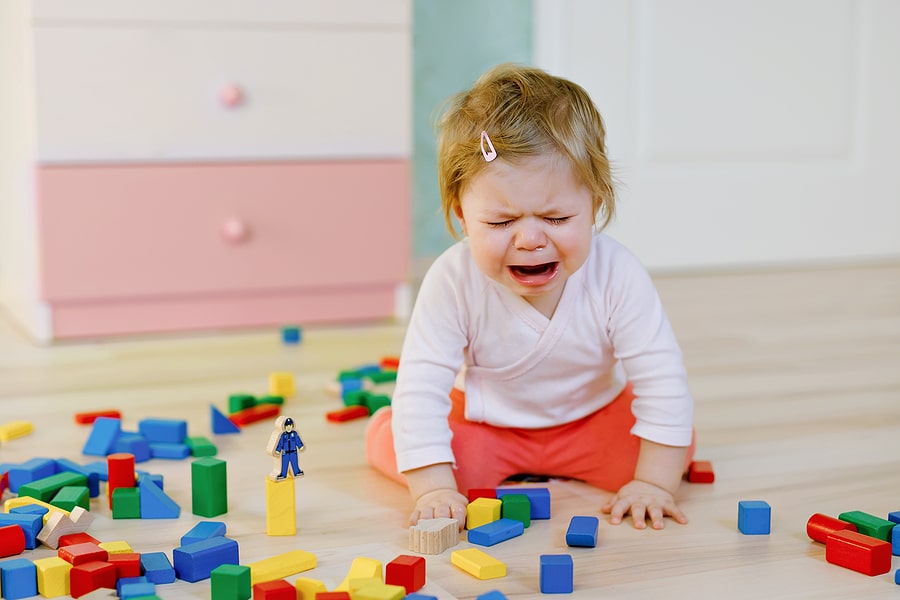
Any time a child suffers serious injuries, it can devastate the entire family. When your child suffers injuries at daycare, you may find yourself devastated, furious, and frustrated. Did the daycare cause your child’s injuries? Should the care provider have prevented them? What damages can you recover if your child suffered serious injuries at daycare?
Do You Have Grounds for a Claim Against the Daycare?
If your child suffered injuries at daycare, your first question may be, “Can I sue the daycare where my child suffered injuries?” Start by contacting a California child injury lawyer. A lawyer can help go over the daycare’s responsibilities, your rights, the rights of your child, and whether you may have grounds for a child injury claim against the daycare when your child suffers serious injuries.
Establishing Duty of Care
To show that you have the right to file a personal injury claim, often, the first step involves establishing that the liable party bore a “duty of care” to the injured party: that the liable party bore responsibility, in some way, for protecting or preventing injury to the victim. Childcare providers usually bear a strong duty of care to the children in their care, which means that if your child suffers serious injuries while under the care of a daycare worker, you will likely not have as much trouble establishing that element.
Determining a Violation of the Duty of Care
Next, in forming your claim, an attorney will look at how the liable party violated that duty of care. A violation of the duty of care can take place in several ways in a daycare environment:
The care provider violated one of the regulations issued by the state.
California has several regulations that govern the steps a childcare provider must take to receive licensure and permission to care for children throughout the state. For example:
- California law governs the student-to-staff ratio in daycare organizations. For children between 6 weeks and 18 months, for example, the childcare center must have at least one staff member on hand for every four children. For children ages 5 and over, the center must have at least one staff member for every twelve children.
- Childcare centers should not allow children to have any access to hazardous materials. Instead, the center should carefully store those materials in a location inaccessible to students.
- Childcare centers must have an accessible first aid kit that will enable staff members to provide basic first aid to students in the event of an emergency.
- Staff members in childcare facilities need to receive certifications for pediatric first aid. Those certifications must remain current to help ensure that care providers can take care of children in a potential emergency.
In addition, childcare centers may need to take specific steps to help protect the children in their care and reduce the overall risk of serious accidents or injuries. For example, if a parent warns the center about a child’s allergy, the daycare should take the steps necessary to prevent the child from encountering those allergens.
The care provider failed to adequately supervise the child.
Daycare workers may end up trying to do way too many things at once or trying to watch too many students at the same time. However, each teacher bears a duty of care to all the students in the building to observe the student as carefully as possible. If a child engages in a dangerous activity, and the care provider fails to notice it within a reasonable time frame, the care provider may bear liability for any injuries suffered by the child, whether the child tries to eat something that causes an allergic reaction, dangerously climbs a playground structure, or tries to stick something in an electrical socket (which, in daycare centers, should remain covered unless in use).
Inadequate supervision can also cause injuries from other children.
A care provider deliberately injured a child.
Sometimes, daycare centers may not adequately background screen a care provider, or may not take the steps necessary to observe the actions of that care provider. As a result, a care provider may deliberately injure a child, resulting in serious injuries. From shaken baby syndrome to broken bones, care provider injuries can have substantial repercussions for the child and the child’s family.
Showing Your Child’s Injuries
Finally, to show that you have the right to file a personal injury claim against a daycare, you will need to show that the daycare’s negligence resulted in some type of damages to your family, usually in the form of your child’s injuries. A child injury claim, by its nature, assumes some type of injury to the victim: in this case, the child.
Sometimes, your child may not suffer injuries due to the care provider’s negligence. For example, suppose that the daycare provider does not adequately supervise your child, and your child manages to escape into the busy parking lot. Another parent quickly brings your child back, so your child does not suffer substantial injuries due to that encounter. As a result, you may not have grounds for a personal injury claim against the daycare center. On the other hand, if your child suffered injuries due to the caregiver’s lack of attention including getting hit by a car or falling and getting hurt you may have the right to file a child injury claim on behalf of your child.
If you have questions about your right to file a child injury claim after your child suffers serious injuries at daycare, contact a lawyer to learn more about the child injury claim process and how it may impact your family.
What Should You Do After a Daycare Injury?
After your child suffers injuries at daycare, you may need to take steps to help protect your child and your family.
Step One: Report the Incident
Before you leave the daycare, report your child’s injuries to the director, if the director has not already mentioned your child’s injuries or filled out a report. Sometimes, your child may suffer such severe injuries that they have to leave the daycare immediately to visit the hospital. You may even have to meet your child at the hospital. Other times, however, you may need to notify the daycare director about your child’s injuries and allow the director to investigate the incident.
Suppose, for example, that you notice that your child has severe bruising that looks like a handprint. You may suspect abuse and want to have the teacher investigated immediately. You will need to notify the director about your child’s injuries to enable the teacher to investigate the cause of those injuries.
If you have already left the daycare before you notice the injuries, including an incident for which you did not receive a report or an incident in which the injuries might occur under the child’s clothes, you should still report the incident to the director as soon as possible. In the case of a negligent or abusive care provider, the daycare needs to know as soon as possible to prevent potential injury to the other children in that provider’s care.
Step Two: Document the Injuries
Take photos of your child’s injuries as soon as you notice them. Often, children heal very quickly. Documentation of the injuries immediately after the accident can serve as vital evidence that can show exactly what injuries your child suffered. You may want to continue documenting those injuries through the healing process. Bruises, for example, may continue to darken for a few days after the incident. You may also discover that your child has more bruises than you thought, based on your initial photo. Try to take photos in good lighting so that you could potentially use them as evidence later.
Step Three: Pursue Immediate Medical Care for Your Child
Any time you suspect abuse or see that your child has suffered serious injuries, immediately pursue medical care. A medical care provider can help diagnose all of your child’s injuries, including injuries that your child might not know to tell you. If your child suffered shaken baby syndrome or traumatic brain injury, a care provider can also help diagnose those symptoms and give you a better idea of your child’s prognosis. After diagnosis, your child’s doctor can also help create a treatment plan that will help maximize your child’s chances of making a full recovery.
A doctor may also help you determine whether your child’s injuries warrant a report to the police. If you suspect child abuse at your child’s daycare, report it to the police promptly to make the investigation proceed more quickly and increase the odds that the police will uncover any abuse. Your report may also help protect other children.
Step Four: Contact an Attorney
Whether your child suffered serious injuries due to neglect or due to provider abuse, get in touch with a child injury lawyer as soon as possible. A child injury lawyer can guide you through your next steps and help you determine what you need to do next. Should you send your child back to daycare while investigating potential neglect or abuse? What options do you have for pursuing compensation after your child has faced serious injuries?
An attorney can help answer those questions, put together a claim, and give you a better idea of the compensation your family may deserve. An attorney can also help you determine your next steps and even help make sure you can put together an accurate report of what happened to your child, including reporting the accident to the police if needed.
Does the Daycare Always Bear Liability for Child Injury?
When your child suffers serious injuries, you want the neglectful party held liable. However, that does not always mean filing a claim against the daycare itself. Sometimes, another entity may bear liability for your child’s injuries.
The Manufacturer of a Defective Product
Daycares use many products intended to help with the care of children, from climbing toys in the playground to cribs in the infant room. The manufacturers of those products must adhere to very high standards in creating them so that they do not pose undue risk to the children who use them. However, sometimes, defective products emerge, often after they have caused serious injury to children and infants.
If your child suffers injury due to a defective product for example, a battery-operated toy causes burns, or a playground toy breaks unexpectedly, causing a serious fall you may have grounds for a claim against the manufacturer of that device. The daycare, however, did not commit negligence in the case of a defective product, and likely would not bear liability for that incident.
A Staffing Agency
Some childcare centers, when they find themselves struggling to provide adequate care and maintain their student-to-teacher ratios, may choose to use staffing centers to find additional help, especially on a short-term basis. Those staffing centers must carefully background check and screen applicants who intend to go to child care centers. If the staffing provider does not conduct adequate background checks and screens, and that care provider harms a child, the staffing agency may bear liability for that incident.
Contact a Lawyer to Learn More About Your Rights
When your child suffers serious injuries in an accident at daycare, you may have a lot of questions about your rights, your next steps, and whether you may have grounds for a child injury claim. A child injury attorney can help. Contact a child injury attorney as soon after your child’s injuries as possible to discuss your right to compensation, how to handle the funds received in a child injury claim, and what steps you need to protect your child.







